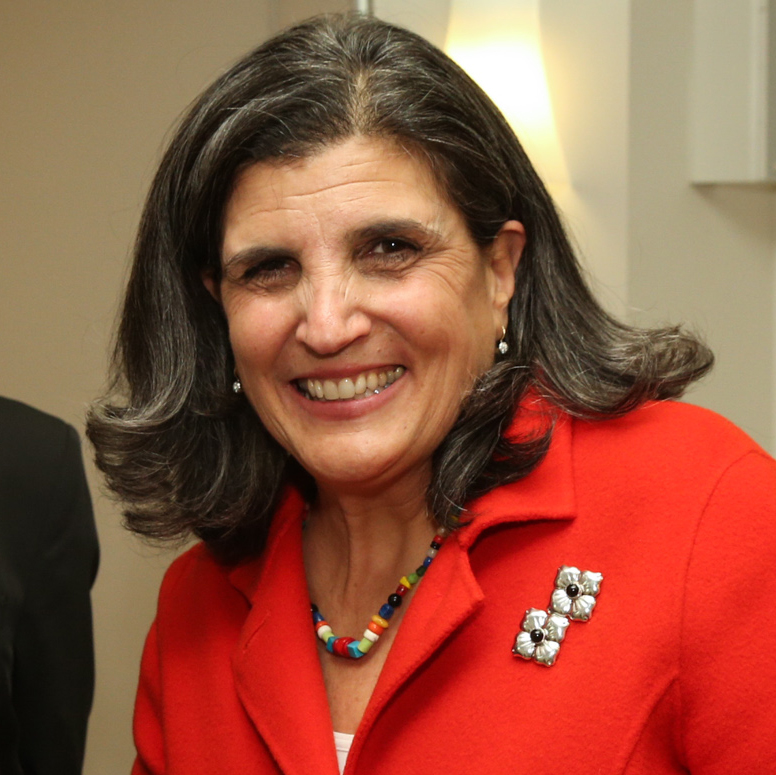03
Jun 2020
Reorienting
President Rabbi Elka Abrahamson
From wherever you are reading these words today, outside your home the city is stunning in its silence… part eerie and, when considered apart from the source of the quiet, part beautiful. The entirety of this moment is disorienting.
I have long been drawn to the unique silence found in nature. Once upon a time, as a teen explorer scout, I aspired to attempt a solo survival trek in the Boundary Waters Canoe Area, a remote and uniquely awe-inspiring destination in Northern Minnesota. In training for the brief but daunting solo journey, I was required to master the use of a compass. It is a lesson from my youth that remains. One of the trickier parts of navigating with a compass is distinguishing between magnetic north and true north; not the same thing. The angle between the two – known as the declination – varies depending on your location. Declination gradually changes over time as the Earth’s tectonic plates shift (got it?). If you don’t adjust the compass to compensate, you will find yourself headed in the wrong direction. I was stymied and frustrated trying to reconcile my compass and map, which, my scout leader kept reminding me, is my best friend…once I determine my true north.
Other than that, I was ready to journey into the woods. I had no fear of being alone and enthusiastically anticipated moving through a cool, dense forest. But without that illusive compass skill, I could not go in lest I never find my way out. Others in my gritty group of scouts preparing to solo were petrified about being alone; one boy was freaked out about lighting matches while an otherwise fearless friend was sure she would be eaten by a bear. Working together and with a good deal of patience, we supported each other. Our wise scout leader reminded us to withhold judgement and focus only being helpful. Compass skills improved, fears both rational and irrational decreased, hundreds of matches were lit successfully, and we all rehearsed reacting to a bear in the woods, which Boundary Water experts regard as giant squirrels. The troop, years before author and Harvard Business School business professor Bill George wrote the book about it, was (literally) a True North group.
True North Groups are small, intimate groups of peers where, if all bring the same intention, one can talk openly and confidentially. As was true of your Wexner Cohort, this group is a place to share challenges and frustrations, to test assumptions and receive honest feedback. A True North Group can function as nurturer, grounding rod, and truth teller. At their best, the members of such a group serve each other as caring coaches and thoughtful mentors…as scout masters. They can help you solve for your declination. And, as I know from personal experience, identifying the difference between where you want to go and the trail to get there can be hard to resolve on your own.
We find ourselves deep in a forest and not a destination of our own choosing. We are unprepared. In a Wexner call earlier this month, Marty Linsky reminded us of the singular importance of identifying our core values and using them as an orienting system even now – or should I say especially now. Not knowing when or how this will end is frightening. What our countries, our world, and our Jewish community will look like on the other side of the woods is unfathomable. There is no map – yet – for the way forward. But we are all blessed with a compass to point us to our true north. That path will be defined by our deeply held beliefs. My internal compass, your internal compass, is an essential guide and at a moment such as this one, we need to check and calibrate it with an intensity previously not known.
The plates of our stability have shifted. Even if we feel out of sorts or imbalanced, we must summon more patience, compassion, kindness and tenaciously seek out the silver linings of innovative solutions to what we know will be massive disruption within our homes and most assuredly our beloved institutions. We are going to need diverse thinkers to realign our priorities…to reimagine the map.
In his book Days of Awe, Israeli author SY Agnon tells the story of a man wandering about in a forest for several days, not knowing which was the right way out. He was surprised to discover another person approaching him. His heart filled with joy. “Now I shall certainly find out which is the right way,” he thought to himself. When close enough to the approaching stranger he asked: ”Brother, tell me which is the right way. I have been wandering about in this forest for days.” Said the other back to him, “My friend, I do not know the way out either. I too have been wandering about in these woods for many, many days. But this I can tell you: do not take the way I have been taking, for that will lead you astray. Let’s look for a new way out together.”
I pray that you are rallying your True North troops during this unsettling time. We urge you to gather together with Wexner colleagues and will rely on them for patience and guidance.
Among COVID19’s silver linings is that our extraordinary Wexner Team has heard from so many of you from all of our leadership initiatives across many decades. You have expressed appreciation for the skills you learned and more than that, for the relationships forged in your Wexner class. Many cohorts a “zooming” for support in the thick dark woods of this moment. During this jarring spring of reorientation, Wexner members, fellows and alumni are lifting each other up, looking for new ways out together.
Get To Know The Author
Rabbi Elka Abrahamson is President of The Wexner Foundation.


